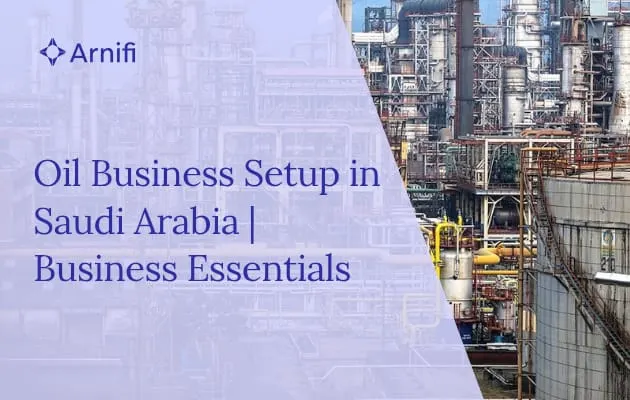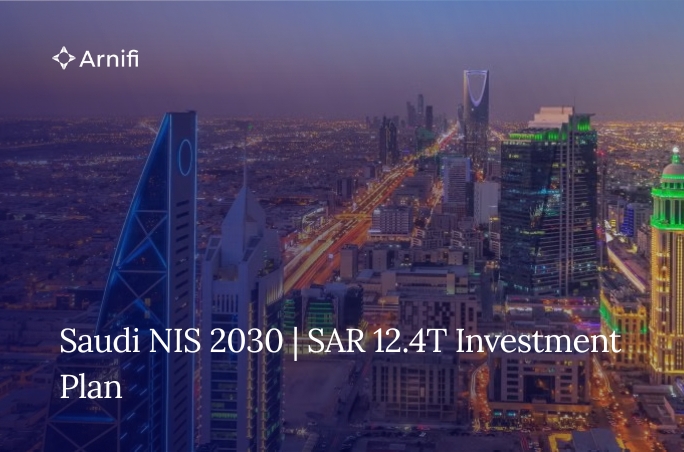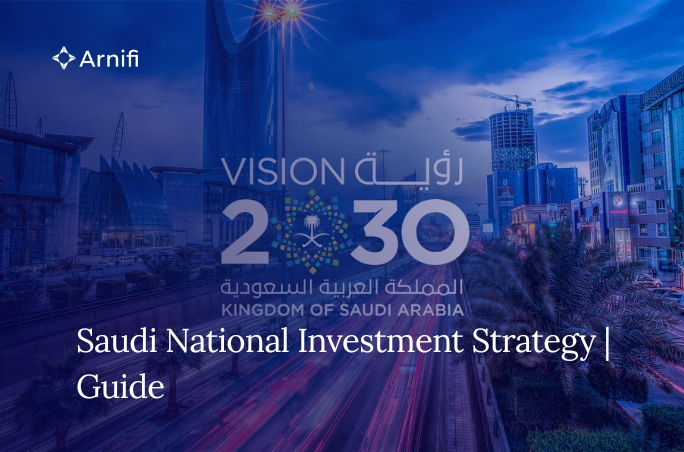How to Start an Oil Business in Saudi Arabia
by Ishika Bhandari Sep 21, 2025  7 MIN READ
7 MIN READ

Table of contents
An oil business in Saudi Arabia can be ramped up with licensing, legal compliance, and strategic location decisions. This guide classifies the types of businesses, business setup steps, costs, and other factors of concern, and regulations to facilitate effective entry into the energy industry in the Kingdom.
Introduction
Saudi Arabia ranks as the largest oil exporter in the world, with Aramco, the most valuable energy company in the world, as its major oil producer. Its prospects for oil-oriented businesses appear unmatched. From the upstream phase of exploration to refining in the downstream phase, from petrochemicals to logistics and support services, the Kingdom remains a magnet for energy investment on a global scale.
This guide is designed for entrepreneurs, investors, and companies (local or foreign-based) looking toward entry into the oil industry in Saudi Arabia. There may be several possibilities, ranging from the establishment of a drilling operation, the supply of oilfield equipment, or trading of petroleum products, but the environment for business and its regulations need to be fully understood to go about it successfully.
What this guide covers:
- Oil business types
- Legal & licensing essentials
- Setup process checklist
- Location & cost factors
- Common challenges & mitigation
- FAQs and action steps
Oil Business – Defined
The term “oil business” encompasses operations in the upstream, midstream, and downstream sectors of exploration and drilling, transport and storage, refining and petrochemicals, and support sectors including equipment, logistics, and services.
Why Saudi Arabia for the Oil Business?
Saudi Arabia holds over 17% of the world’s proven oil reserves, producing more than 10 million barrels daily. Significant investments and reforms across the energy value chain are fueled by the government-led Vision 2030 and strategic diversification objectives.
Key Advantages:
- Strong global demand for refined products and petrochemicals
- High domestic consumption of energy and lubricants
- Huge ongoing state-driven infrastructure and industrial development
- Strategic geographic location concerning Europe, Asia, and Africa
Location Benefits:
- Access to both coasts through the Red Sea and the Arabian Gulf
- Integrated logistic and industrial facilities (e.g., Jubail, Yanbu)
- World-class infrastructure and connectivity
Petrochemical & Cluster Synergies:
The major petrochemical hubs have feedstock access, co-location, and integration with local champions like SABIC and Aramco.
To help with global business expansion
make sure you choose us.
Get in touch with our team to find out about our approach
BOOK FREE CONSULTATIONResponse within 24 Hours
Great, please give us a brief detail about your business.
Types of Oil-Related Businesses You Can Set Up
1. Upstream (Exploration, Drilling)
Highly regulated and capital-intensive; usually require joint ventures or contracts with Aramco or other NOCs.
- Model: JV or service provider
- License: Industrial license via MISA and approvals specific to the sector
2. Midstream (Pipelines, Storage)
Includes crude/product transport, pipelines, terminals, and tank farms.
- Model: Infrastructure operator, third-party logistics
- License: Industrial or commercial, depending on activity
3. Downstream (Refining, Petrochemicals, Lubricants)
Costs a lot of capital but is usually highly profitable with opportunities for exports. Best suited to the industrial zones.
- Model: Greenfield development or JV
- License: Industrial license
4. Support & Services (Logistics, Equipment Supply, Maintenance, Trading):
Entry requirements are lower. These types of services are in demand throughout the oil value chain.
- Model: LLC, commercial agency, branch
- License: MISA commercial license or trade license
Each type needs different kinds of licenses, capital, and compliance levels. Services and trading are the most accessible entry points for foreign investors.
Legal & Regulatory Overview
Key Regulatory Bodies:
- Ministry of Energy – Sector policies and technical regulation
- MISA (Ministry of Investment) – Foreign investment licenses
- MODON / Royal Commission – Industrial zone approvals
- ZATCA – Tax and customs compliance
- Environmental Authorities – Environmental and safety permits
Licensing Needs:
- Industrial License: For refining, manufacturing, and storage
- Commercial License: For services, trading, and logistics
- Environmental Permits: EIAs, pollution control, and safety compliance
Foreign Ownership Rules:
- 100% foreign ownership allowed in many segments
- Sensitive or strategic sectors may require a local partner
- Local content mandates apply to government or Aramco contracts
Other Legal Points:
- Importers may require local agents
- Labor, insurance, and HSE compliance are mandatory
Step-by-Step Setup Process
1. Market Validation
- Carry out feasibility and competitive analysis
- Understand demand, pricing, and regulatory context
2. Choose Jurisdiction
- Mainland: Big market access
- Economic Zones: Tax incentives, infrastructure, and quicker processing
3. Choose Business Structure
- LLC: Most common structure for foreign investors
- Branch Office: Associated extension to a foreign entity
- Joint Venture: This is compulsory in some regulated sectors
- Representative Office: No commercial activity; limited to research/marketing
4. Apply for Licenses and Permits
- MISA investment license
- Commercial/industrial (depending on activity)
- Environmental and sector-specific permits
- Customs registration for importing
5. Handle Recruitment and Localization
- Meet Saudization quotas (via Nitaqat system)
- Obtain work visas and labor permits via Qiwa
- Hire local and expat staff as needed
6. Open Bank Accounts and Register with Authorities
- Register for VAT and other taxes with ZATCA
- Open local bank accounts
- Set up insurance and finance systems
7. Operational Readiness
- Install HSE systems and emergency protocols
- Lease industrial land or facilities
- Set up logistics and supply chain
Estimated Timeline:
- License processing: 4–8 weeks
- Total setup time: 3-6 months, depending on complexity
To help with global business expansion
make sure you choose us.
Get in touch with our team to find out about our approach
BOOK FREE CONSULTATIONResponse within 24 Hours
Great, please give us a brief detail about your business.
Choosing the Right Location
This is where your feedstock accessibility, transportation costs, and overall operational efficiencies will manifest their influence.
Top Locations:
- Jubail Industrial City: Petrochemicals, refining
- Yanbu Industrial City: Chems, Red Sea access
- KAEC (King Abdullah Economic City): Smart infrastructures in a multi-sector zone
- MODON Zones: Countrywide distribution; excellent for logistics and light industrial setups
Benefits of Industrial Zones:
- Predeveloped infrastructure and utilities
- Incentives such as reduced land lease or customs facilitation
- Proximity to suppliers and customers
Key Factors to Consider:
- Transport and port access
- Utility availability and pricing
- Workforce proximity
- Environmental zoning
Cost Drivers & Budget Checklist
Main Cost Elements:
- Licensing & Registration: MISA, municipality, zone fees
- Land/Lease: Varies depending on location and zone type
- Utilities: Electricity, water, gas—sometimes subsidized
- Equipment: Heavy CAPEX for refining or storage
- Staffing: Salaries, training, localization costs
- HSE Compliance: Safety systems, audits, emergency protocols
CAPEX vs OPEX:
- Upstream/Refining: High CAPEX, longer ROI
- Trading/Services: Low to medium CAPEX, faster breakeven
- Storage/Logistics: Balanced CAPEX/OPEX
Rough Budget Estimates:
- Services company: $250K–$1M
- Storage/logistics: $5M+
- Refining/petrochemicals: $50M–$500M+, depending on scale
Common Obstacles and Mitigation
Challenges:
- Regulatory complexity and delay
- Very high costs for capital
- Strict rules on Saudization and HSE
- Complicated trade in terms of local content regulations
Mitigation Strategies:
- Form a partnership with locals, where required
- Start on a small scale (services/trading), build
- Onboard the experienced legal or industrial consultant
- Start engaging with authorities early to smooth the way for approvals.
FAQs
Q1: Do foreigners need a local partner?
Not necessarily. In many support and service sectors, 100% foreign ownership is allowed. However, some upstream or strategic activities require a local partner.
Q2: How long does license processing take?
Usually, it varies from 4 to 8 weeks, depending on the sector and document completeness.
Q3: Which license applies to oil trading vs refining?
- Oil Trading: Commercial license
- Refining: Industrial license
Q4: What permits are needed for environmental compliance?
Environmental Impact Assessment (EIA), pollution control, waste disposal, and safety system approvals are standard requirements.
Conclusion
Starting an oil-related business in Saudi Arabia has huge potential, especially with the country moving toward diversification and expansion of its energy sector.
Quick Action Checklist:
- Identify the focus for your oil business
- Check market and compliance requirements
- Select the right structure and location
- Apply for licenses and environmental permits required
- Start building a strong compliance and operational base
Need assistance with feasibility studies or regulation navigation? Consider partnering with a local advisor or consulting firm like Arnifi with expertise in the Saudi industrial setup to smooth your journey.
Top Saudi Arab Packages

Related Articles
Top Saudi Arab Packages



